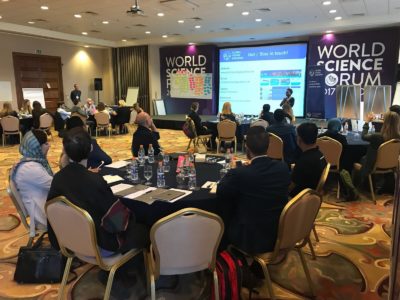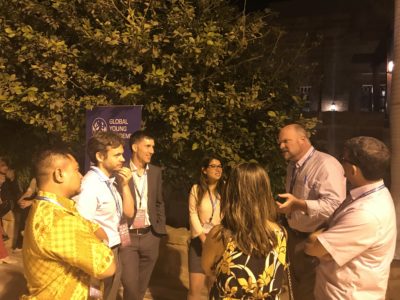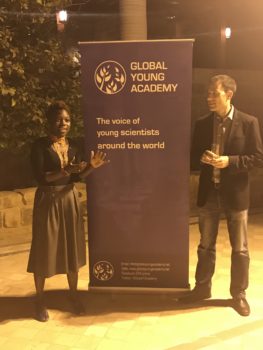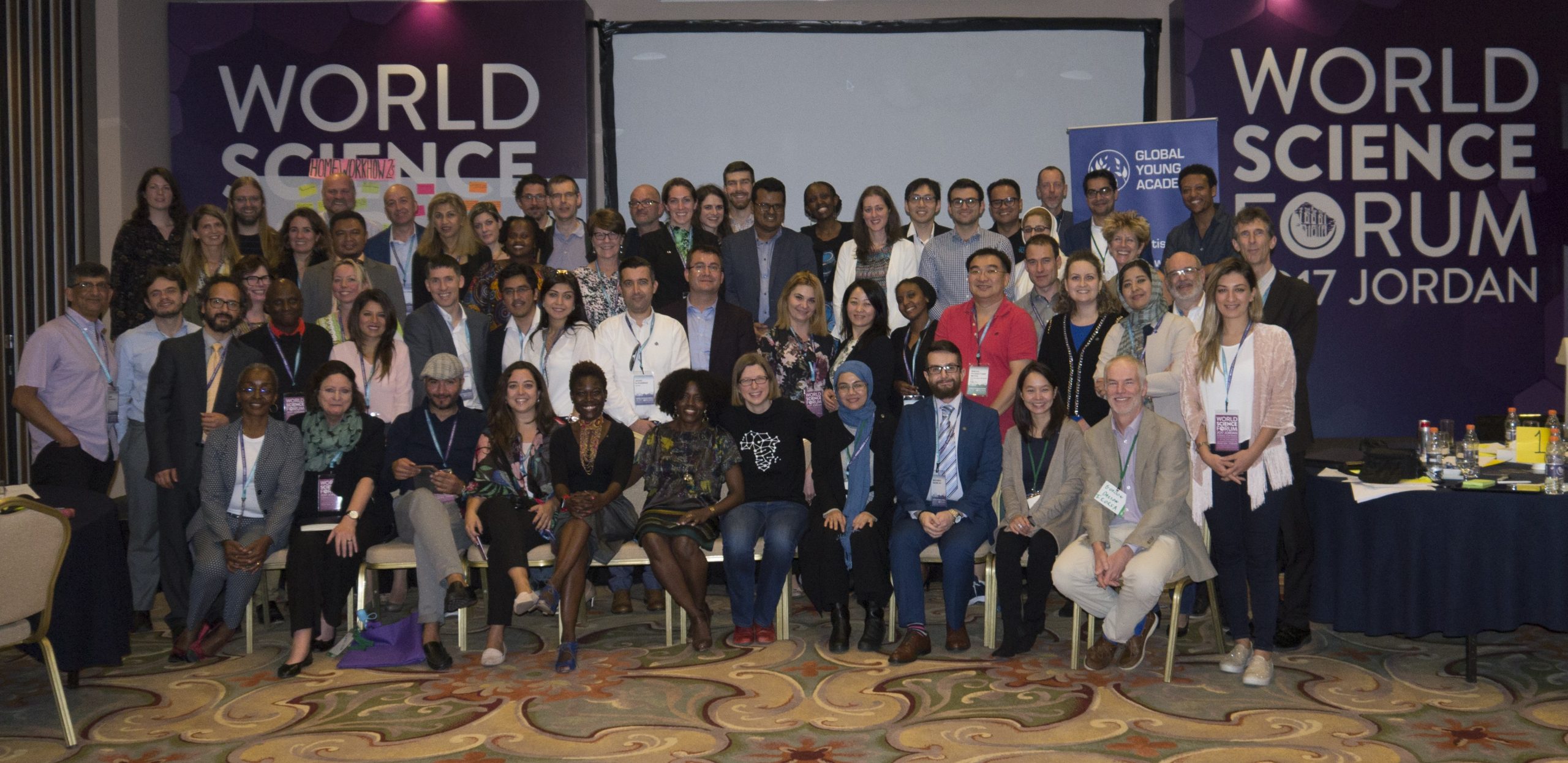On the eve of the 2017 World Science Forum in Jordan, a capacity-building workshop for young scientists entitled ‘Avoiding the Weaponisation of Research’ was held. The workshop was co-organised by the Global Young Academy (GYA) with the InterAcademy Partnership (IAP), World Association of Young Scientists (WAYS), the International Consortium of Research Staff Associations (ICORSA) and UNESCO, as well as facilitators from KnowInnovation. A report on the event was posted by the InterAcademy Partnership.
The full-day workshop focused on applying cultural dexterity skills to avoid the weaponisation of science. The speed of development in science is outstripping the ability of international conventions to react – and this is opening up new possibilities in which advances in fields ranging from biology to artificial intelligence can be used for hostile purposes. The workshop was designed to help young scientists develop leadership skills in science and science diplomacy.
‘Science for Peace’ was the theme of this year’s World Science Forum. With this theme, the scientific community was implored to consider the role of science in diplomacy. Diplomacy requires creative problem solving, seeking alternative approaches, finding win/win opportunities and communicating in thoughtful and persuasive ways. To engage in peace-making, young scientists need to be equipped with the necessary tools to do so, and be able to communicate with sensitivity and dexterity.
The following questions were explored at the workshop:
How to publicize the emerging dual-use issues in Artificial Intelligence technology and application?
How can awareness of bionics misuse be raised among students and young researchers around the globe?
How might the individual scientist, institution, scientific association or international organization influence EU regulations on cyber-security technology?
How would you advocate to policy makers that your genome editing technology should not be weaponized?
How to determine where scientists’ obligations to do good begin in biochemical research, along the pipeline from blue-sky research to implementation?
The day culminated in pitches to a high-level panel. The winning pitch, on cybersecurity, will join the young scientist plenary session at the WSF on 9 November.
Following the workshop, on the evening of 6 November, the GYA hosted a reception for all young scientists attending the World Science Forum.



